Entertainment
Michael Latt, who was fatally shot, leaves a legacy of uplifting marginalized artists
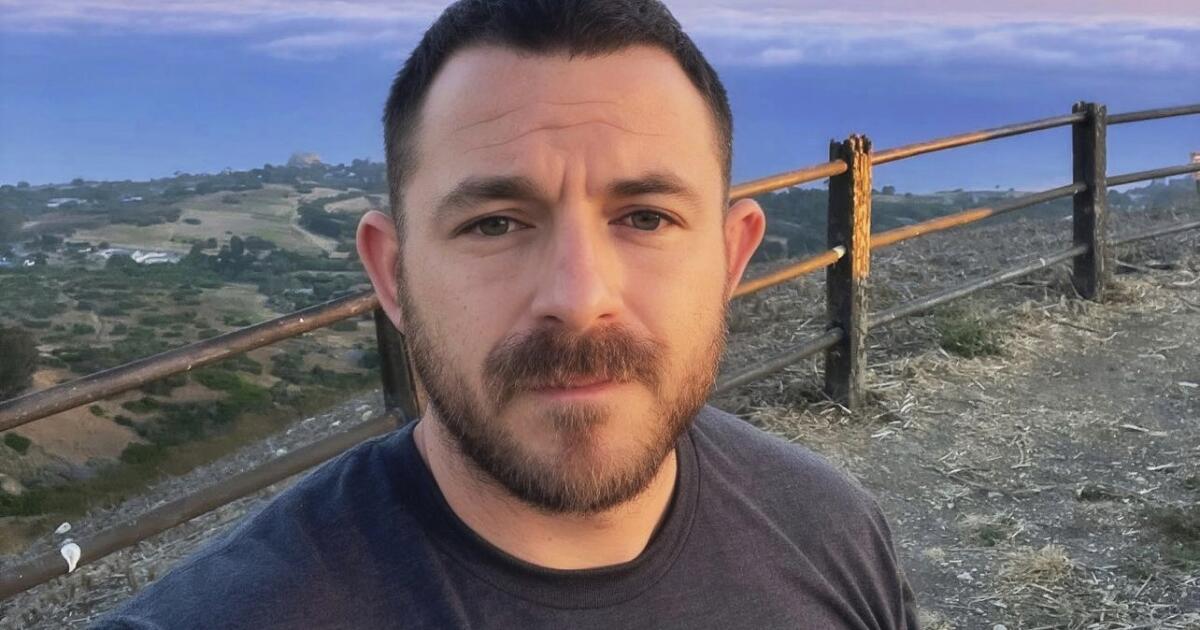
Michael Latt, a 33-year-old marketing strategist and social justice advocate who was shot and killed in his Los Angeles home Monday, leaves behind a legacy of uplifting marginalized artists — but he didn’t foresee this path for himself.
After graduating from Chapman University in 2013 with a degree in public relations and advertising, Latt kick-started his career in entertainment marketing, then, by chance, became the digital marketing director for Ryan Coogler’s acclaimed first feature, “Fruitvale Station.” The film’s release coincided with the George Zimmerman trial.
Zimmerman, a neighborhood watch coordinator, fatally shot unarmed teenager Trayvon Martin on Feb. 26, 2012, in his gated community in Sanford, Fla. He was acquitted the day after “Fruitvale Station” opened in limited release, and protests over the trial’s outcome magnified the film’s impact.
For Latt, promoting the film was a turning point.
“Working on Ryan Coogler’s ‘Fruitvale Station’ opened my eyes up to how prevalent and insidious white supremacy is in our country and also showed me the potent power of storytelling to change hearts and minds,” Latt said in a 2019 interview with Forbes.
A year after “Fruitvale Station” debuted, in the wake of the Ferguson unrest, Coogler asked Latt to lead marketing for the artist-activist collective Blackout for Human Rights, and there he began to more clearly envision a future in social activism.
“The moment I realized that I could use my skill set for social good, I decided to dedicate the rest of my career to helping others, empowering storytellers of color and fighting injustice wherever it stands,” he told Forbes.
“Fruitvale” producer Sev Ohanian, who founded production company Proximity Media with Ryan and Zinzi Coogler, first began working with Latt when “Fruitvale Station” was selected for the 2013 Sundance Film Festival. Ohanian said Latt was pivotal in marketing the film online, starting with a “humble Instagram page.”
“To this day we attribute much of that little film’s ability to find an audience to the work Michael did in single-handedly getting the word out online,” he told The Times in an email. “I’ve always felt that Mike was a trailblazer in utilizing social media with the model he established with ‘Fruitvale Station.’ It’s not at all surprising to see all these years later what an amazing legacy he established for himself as an advocate of the arts, and issues dear to him.”
This became the mission of Latt’s entertainment marketing consulting firm Lead With Love, which he founded in 2019. Through Lead With Love, Latt strove to diversify the pool of creatives in Hollywood.
Since its inception four years ago, Lead With Love has driven digital attention toward myriad festivals, campaigns and social justice organizations focused on uplifting women and artists of color, and their work.
In 2022, Lead With Love partnered with “Manchester by the Sea” producer Kimberly Steward’s K Period Media Foundation (KPMF) on a campaign to promote Chinonye Chukwu’s “Till.” The film tells the story of Mamie Till-Mobley and her pursuit of justice for her 14-year-old son, Emmett Till, who was tortured and lynched in Mississippi in 1955 for allegedly whistling at a white woman — whose testimony at the subsequent murder trial was disputed.
Lead With Love’s three-pronged campaign included an exhibition featuring Black photographers that was on view for about a month at two Black-owned galleries in South L.A. and Atlanta; a 150-foot mural at the Black-owned L.A. event space the Beehive that was dedicated to Emmett and Mamie Till; and a series of events focused on empowering Black women.
At one such event, “Love in Action: Honoring Mothers,” held on Oct. 11, 2022, Black women and mothers were gathered for a screening of “Till.” Afterward, they were invited to assemble their own flower bouquets to pose for portraits. KPMF’s Elizabeth Mosely still remembers being stunned by the thoughtfulness of the flower-making session, which Latt orchestrated himself.
“After going through the traumatic experience of watching that film, then you have this healing process of making these flowers together,” Mosely said. “That was important to him. He was like, ‘We need something that’s uplifting after this really heavy movie.’ I personally had never seen that before, and that was beautiful.”
During several early brainstorming sessions, Mosely had told Latt that she wasn’t sure whether his “big ideas,” as she called them, were feasible — but he always found a way.
As to whether Lead With Love has a future beyond Latt, Mosely remains unsure.
“From my perspective, Lead With Love was Michael,” she said. “I hope somebody can continue the work in a way that he would’ve wanted, but his company was so synonymous with him, and the clients he had were because of his relationships and who he was.”
“Michael had a beautiful way of connecting culture and community,” KPMF founder Steward said in a statement to The Times. “There was always a heartbeat behind his work and genuineness in his efforts. His kindness, tenacity and generosity to this world will not be forgotten.”
In addition to promoting individual films, Lead With Love has also advised the Sundance Institute, where Latt’s mother, Michelle Satter, serves as the founding director of its feature film program. For her work at the institute, Satter will receive the the Jean Hersholt Humanitarian Award (and an Oscar statuette) at the film academy’s Governors Awards in January.
Building on his mother’s work, Latt had helped increase visibility over the years for Sundance.
For the 2016 fest, Latt partnered with Facebook to produce an original video series featuring several creatives Latt had worked with before, including Nate Parker and Common, and others attending the event, including Christopher Nolan and Diego Luna.
According to Lead With Love’s website, the 10-plus videos published during the festival generated more than 10 million views and 50 million impressions — a 400% increase in impressions compared with the previous year.
“He dedicated his career to serving others, employing storytelling, art and various mediums to create enduring change, and galvanizing communities with hope, love and inspiration,” the Sundance Institute said in a statement on behalf of the Latt family. “Michael will never be forgotten and his legacy and work will carry on through his family, his friends and his colleagues.”
Police say Latt’s killing was the culmination of a series of threats made by Jameelah Michl, who was an extra on A.V. Rockwell’s film “A Thousand and One” and began stalking Rockwell shortly thereafter. In June, the director filed a restraining order against Michl, whose initially innocuous fan messages had turned violent and threatening, Rockwell said in court documents reviewed by The Times.
Five months later, Michl forced her way into Latt’s Mid-City apartment building and shot him, authorities say.
According to a news release from the district attorney’s office, Michl targeted Latt because he was “friends with a woman [Michl] had been stalking,” but Los Angeles County Dist. Atty. George Gascón didn’t name Rockwell as the stalking victim.
“Our hearts ache for the loss of a passionate advocate who believed in the principles of justice and equity within our criminal legal system,” Gascón said in a statement Thursday. “It is devastating to see a life cut short, especially one dedicated to fighting for a more just society.”
Satter; Latt’s father, writer-producer David Latt; and Latt’s older brother, Franklin Latt, co-head of the motion picture talent department at Creative Artists Agency; issued their own remarks Thursday.
“He devoted his career to supporting others, championing organizations that raised up women and artists of color, along with leveraging storytelling, art and various mediums to create enduring change and instill communities with hope, love and inspiration,” his parents said in a statement. “Michael will never be forgotten and we ask you to all carry on his legacy of love, compassion and fierce dedication to positive and lasting change.”
His brother added: “To know Michael was to understand that he lived his life with intention. The outpouring of love and support from all those he touched has been gratifying for our family beyond words. He founded his company Lead With Love to champion artists and to affect positive change for the world at large. His legacy will live on eternally through all of us as we choose to lead our own lives with that very same intention.”
On Thursday night, filmmaker Ava DuVernay dedicated the New York City premiere of her film “Origin” to Latt. Latt worked as a communications consultant for DuVernay’s independent distribution company ARRAY Now from 2019 to 2020.
“[Latt] was such a good guy, an extraordinary person — one of those people that comes into the room and just lights it up,” DuVernay said, holding back tears. “If you needed him, he would be there. He didn’t ask for money, he didn’t ask for fame, he didn’t ask for anything. He liked to work behind the scenes to get the word out about the things that mattered.”

Entertainment
Tyler Perry calls out 'highbrow' critics, defends his fans: 'Don't discount these people'
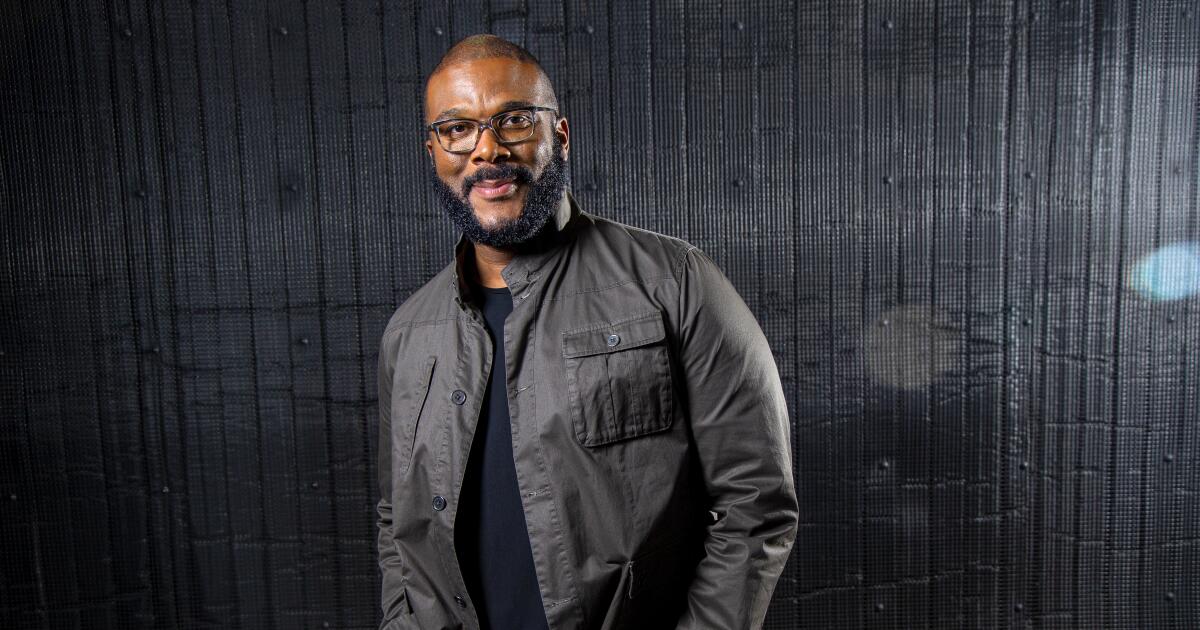
Tyler Perry’s last feature film earned a rare 0% on Rotten Tomatoes — a point that’s apparently of little concern to him.
The billionaire filmmaker, best known for his franchise character Madea, is far more interested in the opinions of his fans than those of “highbrow” critics, he said on the “Baby, This is Keke Palmer” podcast.
“For everyone who is a critic,” Perry said in the Tuesday episode, “I have thousands of — used to be — emails from people saying: ‘This changed my life. Oh, my God, you know me. Oh, my God, you saw me. How did you know this about my life and my family?’ So that is what is important.”
Critiques of Perry and his purportedly flat depictions of Black characters date back to his early directing days. Spike Lee, for one, in 2009 famously alluded to Perry’s work while complaining about the “buffoonery” in Black comedy. More recently, playwright Michael R. Jackson took his turn swinging at the movie mogul in his metafictional musical “A Strange Loop.”
In the number “Tyler Perry Writes Real Life,” Jackson’s protagonist — a Broadway usher who dreams of being a writer — denounces Perry’s oeuvre: “The crap he puts on stage, film and TV / Makes my bile want to rise!”
The song wasn’t born of any “personal vendetta,” Jackson told Washington Post Live in 2022. “It’s really about actually taking Tyler Perry’s work very seriously, because it’s often held up, often by Black communities, as sort of, like, the end-all-be-all of what one can do as a Black artist.”
“I just wanted to sort of problematize that and satirize that,” he said.
Upon Palmer referencing Jackson’s musical jab, Perry told the podcast host, “I know for a fact that what I’m doing is exactly what I’m supposed to be doing.”
When it comes to critics in general, he continued, it’s best to “drown all that out.”
“We’re talking [about] a large portion of my fans who are disenfranchised, who cannot get in the Volvo and go to therapy on the weekend,” he said. “So you’ve got this [Black critic] who is all up in the air with his nose up looking at everything, and then you’ve got people like where I come from, and me, who are grinders, who really know what it’s like, whose mothers were caregivers for white kids, and were maids and housekeepers.”
He added: “Don’t discount these people and say that their stories don’t matter. Who are you to be able to say which Black story is important or should be told? Get out of here with that bull-.”
Corey Hardict, who co-stars in Perry’s latest film “Divorce in the Black,” last week invoked a similar defense for the critical bomb: “I mean, the people love the movie and we do it for the people — that’s who I do it for. If the culture’s rocking with it, it’s all love. So it’s fine.”
Perry’s podcast comments have already garnered backlash online, with Preston Mitchum of the reality show “Summer House: Martha’s Vineyard” writing Wednesday on X, “Yes, because writing and producing a movie where a Black woman from a small town cheated on her husband, acquired HIV, then ended up physically disabled is absolutely the groundbreaking Black story we need to see.”
Mitchum’s post seemingly refers to Perry’s 2013 film, “Temptation: Confessions of a Marriage Counselor.”
Palmer defended Perry against other disparagers online, writing Wednesday on X, “The enemy isn’t Tyler it’s the system that makes it hard for multiple black artist[s] to shine at one time.”
“Tyler is not the gatekeeper of all black stories he’s just one creative who broke through the system,” she wrote. “Advocating for others to do the same is the fight, not hating Tyler for his work that many do love.”
Perry in 2019 celebrated the grand opening of his 330-acre Tyler Perry Studios in Atlanta. He created the complex with the hope of promoting cultural diversity in the film industry, he told The Times in 2016.
“Sometimes I drive around here by myself and think, ‘Is this too much, or is this what I’m supposed to do?’ ” Perry said. “The answer is obvious. When this fell into my lap, I said, ‘I have to do this.’ This is the endgame.”
Movie Reviews
Movie Review: Twisters – Kenbridge Victoria Dispatch

Movie Review: Twisters
Published 11:15 am Friday, July 26, 2024
1 of 3
Let me immediately cut to the chase (pun intended) and answer the question you’re all wondering. TWISTERS is a fun and entertaining summer blockbuster, but it in no way holds a candle to its predecessor TWISTER (1996). Still, the CGI is intense, the sound design is loud and immersive, and the lead performances — especially from Glen Powell — are sure to wow.
Following a horrible tragedy, meteorologist Kate Carter (Daisy Edgar-Jones) has spent years out of the storm chasing business. She now lives in the largely tornado-less New York City, using her innate understanding of storm systems to direct weather alerts. But when her old friend Javi (Anthony Ramos) begs her to join his privately-funded start-up, which is designed to use military-grade radars to learn more about tornadoes and save communities in Oklahoma, she agrees to give him a week of her time. It’s not too long before “tornado wrangler” influencer Tyler Owens (Glen Powell) enters the scene with his ragtag group of weather enthusiasts, creating a competition between scientific research and entertainment. Each group races to be the first on the scene, with Kate and Javi seeking to model the tornado and Tyler trying to get the most likes on social media. But can the two groups find a way to work together or will the competition be more vicious than the tornadoes?
I am admittedly judging myself for caring too much about a summer blockbuster’s plot, because that’s not really what any of us sign up for with these films. But the various encounters with tornadoes begins to feel slightly repetitive and creates pacing issues, making a two-hour film feel like its runtime. And for some reason, it seems like there is something missing when it comes to portraying the sheer terror of experiencing F5 tornadoes, unlike the original film; the main set pieces were not as memorable.
The film does little to make you care about whether the characters live or die, relying on Glen Powell and Daisy Edgar-Jones’s chemistry and natural charisma to do the heavy lifting. The second Powell steps out of his gigantic truck, with his cowboy hat and belt buckle sparkling in the sun… sorry, I just lost my train of thought… and that’s what TWISTERS is hoping. Powell’s magnetism is sure to knock you off your feet and distract you from the film’s middling plot. And while Edgar-Jones’s performance is more muted, due to her character’s battle with PTSD, she brings an important level of humanity to the film and a character to both see yourself in and root for. More than that, her chemistry with Powell is off the charts and will certainly leave you wanting their relationship explored more in a sequel. The supporting characters are not given much to work with and as such, don’t really engender much concern when they are in deadly situations.
One element of TWISTERS I liked more than TWISTER is it showed the emotional and financial toll tornadoes ravage on communities. Of course, that is an element of the first film, but TWISTERS does a great job showcasing the speed in which tornadoes can overtake and devastate a community, both in loss of life and loss of property. This, juxtaposed with the “fun” in chasing storms brings a real human element to the film. I also want to give a shoutout to the movie not having any sad animal scenes (apart from a possible run-in with a chicken). So for all of you sickos excited to see another flying cow, this isn’t for you.
TWISTERS is the exact kind of movie you need to see in a theater so you can get the full experience. Where else can you admire the cinematography, get immersed in the sound design, and lose yourself in Glen Powell’s cowboy hat and million dollar smile? I saw it in a Dolby theater and was blown away.
There is no end credit scene.
My Review: B
Entertainment
Appreciation: John Mayall set the bar for the British blues explosion by leading with heart and soul
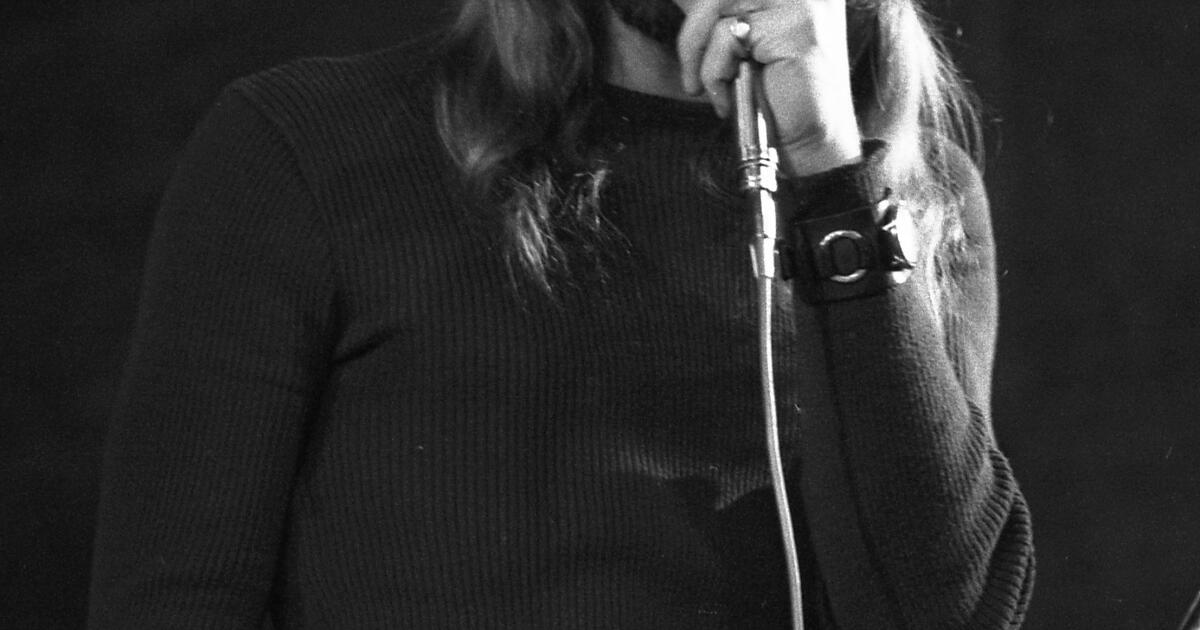
As a kid growing up on the outskirts of Manchester, England, John Mayall recognized something personal in the blues records coming over from the United States. He heard joy, agony and stories from real life, all of it set to music that could be euphoric and downtrodden, hopeful and mysterious.
It was music of profound emotion that would stay with him forever, and as a leading purveyor of that tradition in the British blues explosion of the 1960s, he represented a standard for many better-known players to follow. “He was my mentor and a surrogate father too,” Eric Clapton said in a tribute posted Wednesday on Instagram. “He taught me all I really know and gave me the courage and enthusiasm to express myself without fear or without limit.”
Mayall, who died this week at age 90, provided a home to an astonishing lineup of virtuosic players who passed through his band the Bluesbreakers en route to greater fame later: Clapton and Jack Bruce (who formed Cream), Mick Taylor (later of the Rolling Stones) and members of Fleetwood Mac, Journey, Canned Heat and more.
John Mayall was a mentor to Eric Clapton, Mick Fleetwood and many other superstars.
(Claus Hampel / Associated Press)
He was a half-generation older than many of the iconic players he nurtured, and an important source of inspiration. He gave refuge to a disheartened Clapton, who had just quit the Yardbirds and was considering leaving music entirely. But the fame that many of Mayall’s endlessly rotating sidemen later enjoyed was entirely beside the point to him.
“The great roster of the most famous names all came out of that period of London of four or five years,” he told me in 1997. “Everybody knew everybody, so they were shifting around, finding their own musical path. As a band leader I just hired whoever turned me on. That criteria is the same today as always.”
Back in the 1990s, I interviewed Mayall a few times, including at his house in the San Fernando Valley. Our very first talk on the phone was cut short by him after about 15 minutes, probably from my own inexperience as an interviewer and for asking too many questions about his more controversial statements. (Like calling Led Zeppelin “a parody of the blues.”)
But he was normally a patient proselytizer of the blues. While his own reputation often rested with his role as a profoundly gifted scout of talent, his own records showed a steady commitment to what had first inspired him. Mayall was a singer and multi-instrumentalist (harmonica, keyboards, guitar), and like his heroes, the songs he wrote were autobiographical — celebrations and laments about his life experiences.
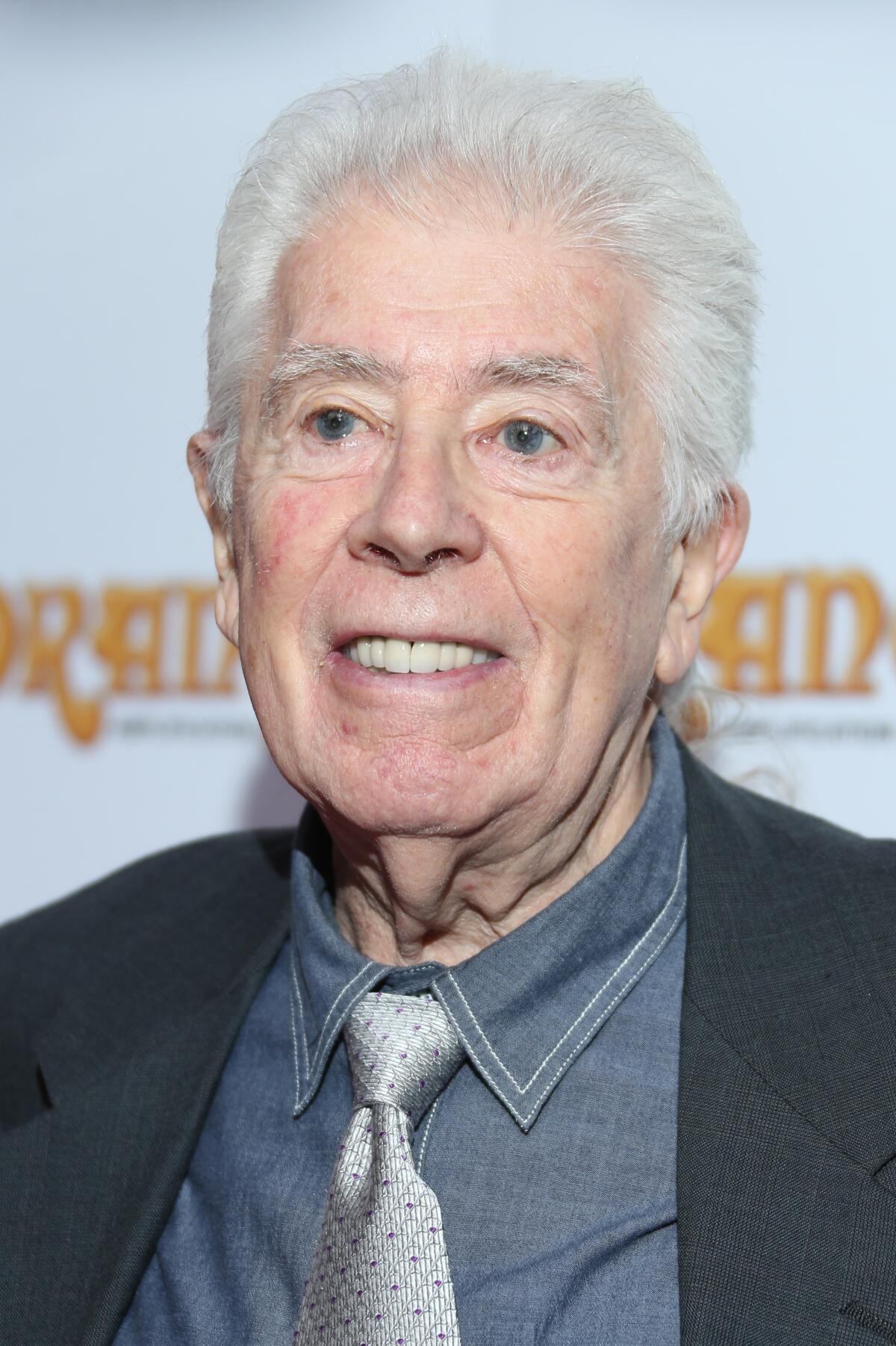
John Mayall in 2013 at the Classic Rock Roll of Honor Awards show in London.
(Joel Ryan / Invision/Associated Press)
He was sometimes criticized as a purist who rarely wavered, even as former collaborators won accolades and made hit records by straying into rock, psychedelia and pop. If anything, his experiments went further away from the masses with a jazz-rock fusion sound on 1968’s “Bare Wires.” He stretched out with layers of horns and flute, he went solo acoustic, but the electrified Chicago blues was always his North Star.
“‘Purist’ is a funny word really, because it can mean someone who doesn’t want to shift from doing note-for-note copies of stuff other people have done in the early days,” he said. “There are bands that just do that. They consider themselves blues purists. But I’ve always been an innovator, so purist doesn’t really fit.
“I do draw from the pure roots of the blues to make something that’s very contemporary and something that is very personal.”
He grew up in the late-1940s and ’50s listening to his father’s vast record collection, learning to love the Mills Brothers, Charlie Christian and Lonnie Johnson, and was soon saving up to buy his own 78 rpm discs. “Anything with the word ‘boogie’ on it, I bought it,” Mayall told me. He then discovered the immortal blues played by Big Bill Broonzy, Blind Lemon Jefferson and Sonny Terry.
He was already 30 when he left Manchester for London, after a career in typography and art, ready to join the blues scene rising there. “It all really happened rather suddenly, and everybody really came down to London,” he said. “The Animals came down from Newcastle, Spencer Davis and Stevie Winwood came from Birmingham. If you wanted to play you really had to start off and be based in London. So that’s what I did.”
The British blues scene was kicked off by Alexis Korner and Cyril Davis, evolving from folk clubs to electrified Chicago blues. As it had for Mayall, American blues had reached the postwar generation on the British Isles and ignited a movement, even as blues was still underappreciated back in the U.S. It would take a British invasion of inspired young players to bring it back home.
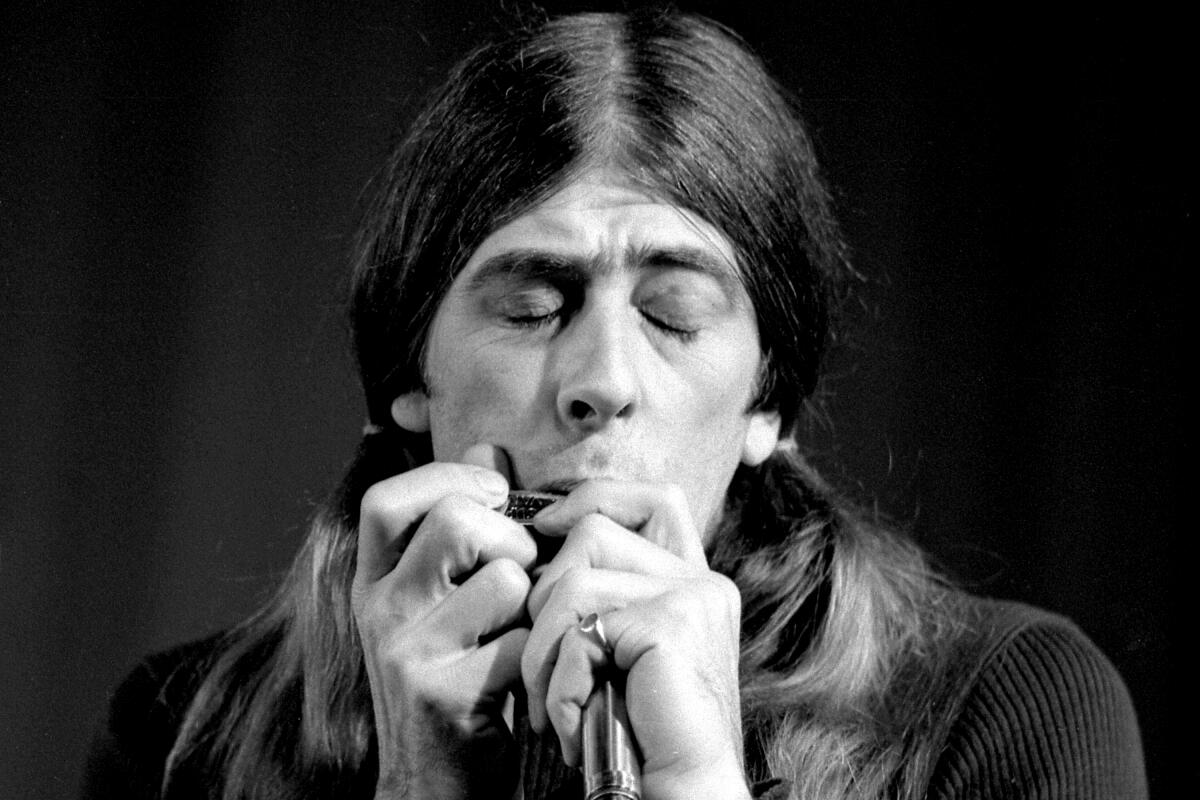
Mayall was a singer and multi-instrumentalist (harmonica, keyboards, guitar), and like his heroes, the songs he wrote were autobiographical — celebrations and laments about his life experiences.
(Claus Hampel / Associated Press)
In those early days, Mayall was encouraged by successes of the early Rolling Stones and Yardbirds. “I was pretty amazed, because I had been playing this music privately for 15-20 years and knew what it was all about. But I’d never dreamed it was fit for public consumption, so to speak,” he said. “I owed it to myself to give it a shot.”
His best-known album, 1967’s “Blues Breakers With Eric Clapton,” is considered a classic document of that scene, and an early sign of Clapton’s still evolving skills. Mayall otherwise had no major pop hits, and few accolades for most of his life other than a couple of Grammy nominations. In 2005 he was awarded an OBE (Officer of the Order of the British Empire) by Queen Elizabeth II, and this fall was to be inducted into the Rock and Roll Hall of Fame with an Influence Award.
At times during interviews, he would grumble about a lack of recognition, but his focus remained on the work ahead — spending a third of the year on the road, and releasing nearly 40 studio albums and more than 30 live recordings in his lifetime. For him, his musical journey remained always open-ended, right up until his last performance in February 2022 in San Juan Capistrano.
“Creating music is an art,” he explained. “Jazz musicians and blues musicians, their careers do not end except by death. It’s something that has a built-in longevity. It’s not a flash-in-the-pan thing. The years only make you more mature, you learn more and more as the years go by.”
-

 World1 week ago
World1 week agoOne dead after car crashes into restaurant in Paris
-

 Midwest1 week ago
Midwest1 week agoMichigan rep posts video response to Stephen Colbert's joke about his RNC speech: 'Touché'
-

 News1 week ago
News1 week agoVideo: Young Republicans on Why Their Party Isn’t Reaching Gen Z (And What They Can Do About It)
-

 News1 week ago
News1 week agoIn Milwaukee, Black Voters Struggle to Find a Home With Either Party
-

 Politics1 week ago
Politics1 week agoFox News Politics: The Call is Coming from Inside the House
-

 News1 week ago
News1 week agoVideo: J.D. Vance Accepts Vice-Presidential Nomination
-

 Movie Reviews1 week ago
Movie Reviews1 week agoMovie Review: A new generation drives into the storm in rousing ‘Twisters’
-

 World1 week ago
World1 week agoTrump to take RNC stage for first speech since assassination attempt



/cdn.vox-cdn.com/uploads/chorus_asset/file/25547838/YAKZA_3840_2160_A_Elogo.jpg)












